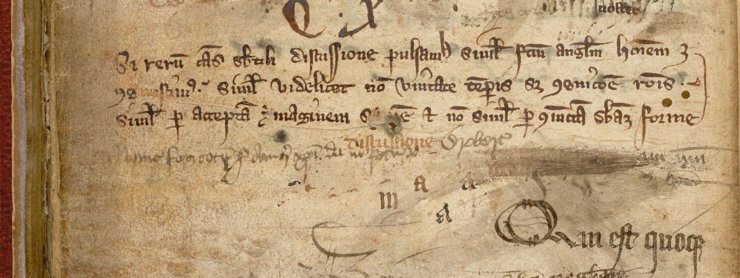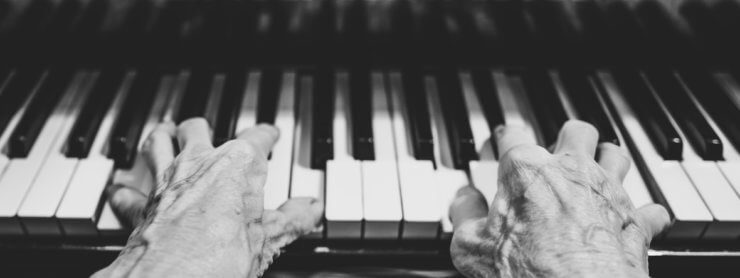 Bibliotherapy is a way of soothing oneself through reading books. These could be novels, non-fiction works or pieces of inspirational writings. The grace of books lies in their ability to take our maddening pace of thinking and acting down a few notches: information wrapped in more than bullet points, 140 character snippets of opinions, or fluid news reporting. When one reads a book, one creates a sacred space of connecting to one’s own heart beat, and one’s own imagination – even if the work you’re reading explains the intricacies of spacetime or the thought processes of famous artists.
Bibliotherapy is a way of soothing oneself through reading books. These could be novels, non-fiction works or pieces of inspirational writings. The grace of books lies in their ability to take our maddening pace of thinking and acting down a few notches: information wrapped in more than bullet points, 140 character snippets of opinions, or fluid news reporting. When one reads a book, one creates a sacred space of connecting to one’s own heart beat, and one’s own imagination – even if the work you’re reading explains the intricacies of spacetime or the thought processes of famous artists.
On this page I suggest a few titles that clients, friends, teachers or myself have found worthwhile. Some titles are linked to Amazon for no other reason than ease, others are linked to the website Goodreads, where readers share their opinions and ideas about books or authors.
Romance, Relationship & Sexuality
Terrence Real: Us – A profoundly inspiring book about intimacy, and the hurdles within us all and between us to achieving connection and authenticity. Terry Real has taught me a great deal about relationships and the need for continued awareness when communicating with significant others. Whatever happens, he writes, between you and your loved ones, “remember love.”
John & Julie Gottman: The Seven Principles for Making Marriage Work – The architects of the Gottman Method wrote a very practical and research-based book on successful marriages; this book is full of exercises and skill-building to improve communication within couples. I appreciate their practical approach, and at the same time feel that some extracurricular work on understanding intimacy helps implement the Gottman approach.
Pia Mellody: The Intimacy Factor – Only available as a second hand book, The Intimacy Factor is one of the best books about the intricacies of emotional and relational intimacy. Mellody describes the individual work needed to move towards authenticity, vulnerability and truthful and honest communication. She highlights at the same time the need for healthy boundaries.
Katherine Woodward Thomas: Conscious Uncoupling – Woodward Thomas provides a five step process to move through the often painful and difficult stage after breaking up or separating/divorcing. Consciously moving through the process of grief, anger, sadness, despair and/or fear can clear the path to healing and wholeness, and towards a fulfilling life either ready for a new attachment or satisfied with life as a single person.
Esther Perel: Mating in Captivity – Sex and relationship therapist Esther Perel explores possibilities of keeping passion and sexuality alive in long-term relationships. Perel believes that polarity is required between lovers to keep passion alive. Becoming or staying your own individual while being connected to another person provides romance with a life-long potential for exploration and excitement. Terrence Real (see above) and Esther Perel often work together when addressing audiences on themes of intimacy and relationships.
Emily Nagoski: Come As You Are – Nagoski seems to take the opposite approach from Perel. For Nagoski, a vibrant sex life in long term relationships requires alignment, trust, safety and romance. Nagoski falls more in line with the Gottman Method in regards to romance and sexuality. What I appreciate especially about Nagoski’s book is her invitation to women to explore their own sexual identities, regardless of social expectations. I paraphrase her: “Forget the map others wrote about female sexuality, and explore your own terrain. Find your own voice, and learn to express it.”
Laurie Watson: Wanting Sex Again – Sex therapist Watson uses a wide variety of vignettes to describe various scenarios in which physical intimacy might have fizzled out in long term relationships and offers ways to unblock stifled desires or libidos. Her book is written thoughtfully, clearly and offers practical suggestions to tap into one’s libido again.
Diana Richardson – The Heart Of Tantric Sex – A resident of Switzerland, Diana Richardson and her husband Michael offer courses for couples twice a year on how to improve a couple’s sexual intimacy, through the practice of tantra. The essence of tantra is to shift the focus from “performance” to “presence”: ‘stop doing, start being.’
Psychology
Thomas Moore: Care of the soul – Thomas Moore presents readers with a revolutionary approach to thinking about daily life—everyday activities, events, problems, and creative opportunities—and a therapeutic lifestyle is proposed that focuses on looking more deeply into emotional problems and learning how to sense sacredness in ordinary things.
Thomas Moore: A Life at Work – A job is never just a job. It is always connected to a deep and invisible process of finding meaning in life through work.
James Hillman: The Soul’s Code – James Hillman presents a brilliant new vision of our selves not defined by family relationships or the mentality of victimization. Drawing on the biographies of such disparate people as Ella Fitzgerald and Mohandas K. Gandhi, James Hillman argues that character is fate and shows how the soul, if given the opportunity, can assert itself even at an early age.
David Denborough: Retelling the stories of our lives – Our lives and their pathways are not fixed in stone; instead they are shaped by story. The ways in which we understand and share the stories of our lives therefore make all the difference. If we tell stories that emphasize only desolation, then we become weaker. If we tell our stories in ways that make us stronger, we can soothe our losses and ease our sorrows.
David Richo – When love meets fear – The author of the best-selling Flow to Be an Adult explains in his popular style how fear cripples our ability to release our full potential. He then presents a concrete program of change for overcoming this fear. Richo looks at th deepest roots of fear: fear of love, loss, change, being alone, fear of others, fear of self-disclosure, fear of giving and receiving, coming and going. His program includes becoming defense-less, that is, allowing ourselves to feel fear without our buffering defenses, and then becoming resource-full, that is, learning to act in new ways.
CG Jung: Dreams, Memories, Reflections – In the spring of 1957, when he was eighty-one years old, C. G. Jung undertook the telling of his life story. At regular intervals he had conversations with his colleague and friend Aniela Jaffé, and collaborated with her in the preparation of the text based on these talks. On occasion, he was moved to write entire chapters of the book in his own hand, and he continued to work on the final stages of the manuscript until shortly before his death on June 6, 1961.
Irvin Yalom: the gift of therapy – The culmination of master psychiatrist Dr. Irvin D. Yalom’s more than thirty-five years in clinical practice, The Gift of Therapy is a remarkable and essential guidebook that illustrates through real case studies how patients and therapists alike can get the most out of therapy.
Peter Levine – Healing Trauma: A Pioneering Program for Restoring the Wisdom of Your Body – Researchers have shown that survivors of accidents, disaster, and childhood trauma often endure lifelong symptoms ranging from anxiety and depression to unexplained physical pain, fatigue, illness, and harmful “acting out” behaviors. Today, professionals and clients in both the bodywork and the psychotherapeutic fields nationwide are turning to Peter A. Levine’s breakthrough Somatic Experiencing® methods to actively overcome these challenges.
Bessel van der Kolk – The Body Keeps the Score – Trauma is a fact of life. Veterans and their families deal with the painful aftermath of combat; one in five Americans has been molested; one in four grew up with alcoholics; one in three couples have engaged in physical violence. Dr. Bessel van der Kolk, one of the world’s foremost experts on trauma, has spent over three decades working with survivors. In The Body Keeps the Score, he uses recent scientific advances to show how trauma literally reshapes both body and brain, compromising sufferers’ capacities for pleasure, engagement, self-control, and trust. He explores innovative treatments—from neurofeedback and meditation to sports, drama, and yoga—that offer new paths to recovery by activating the brain’s natural neuroplasticity.

Spirituality
Karen Armstrong: The Case for God – A nuanced exploration of the part that religion plays in human life, drawing on the insights of the past in order to build a faith that speaks to the needs of our dangerously polarized age.
Evelyn Underhill – Mysticism: A Study in the Nature and Development of Spiritual Consciousness – Widely considered the best book on mysticism for the general reader, this classic volume assembles a broad range of information scattered among monographs and textbooks in many languages.
Rumi: The Book of Love: Poems of Ecstasy and Longing – The definitive collection of America′s bestselling poet Rumi′s finest poems of love and lovers. In Coleman Barks′ delightful and wise renderings, these poems will open your heart and soul to the lover inside and out.
Anonymous – Cloud of unknowing – The Cloud of Unknowing is an anonymous work of Christian mysticism written in the latter half of the 14th century. The text is a spiritual guide to contemplative prayer. “Be willing to be blind, and give up all longing to know the why and how, for knowing will be more of a hindrance than a help.” This 1912 edition was edited by Evelyn Underhill, and contains her introduction.
The Way of Paradox: Spiritual Life as Taught by Meister Eckhart – The aim of The Way of Paradox is to express the main elements of Meister Eckhart’s teachings on the spiritual life so that modern people can grasp his ideas. Eckhart was born in the 13th century. He was a Dominican friar trained in theology and philosophy and entrusted with important teaching and administrative posts by his congregation. He had in common with Benedict a deep knowledge of the human heart and he sought to understand what it is in human beings that make them desire God. Eckhart was born into an age of transition – as we are and as Benedict was – when there was dissatisfaction and restlessness and a desire for change. There was a feeling that the old forms of society and worship were no longer meeting the needs of the people. “I cannot know God unless I know myself”.
David Deida – In The Way of the Superior Man, David Deida explores the most important issues in men’s lives—from career and family to women and intimacy to love and spirituality and relationships—to offer a practical guidebook for living a masculine life of integrity, authenticity, and freedom.






